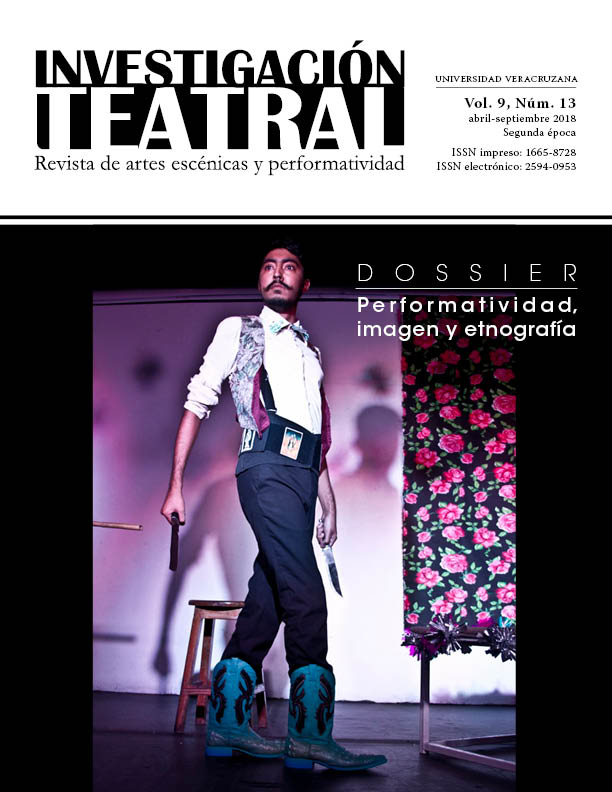Resumen
En este ensayo intento dar pistas para comprender la labor afectiva del duelo en dos contextos. Primero, retomo la construcción de las “ofrendas nuevas” en Teloloapan, Guerrero, como una expresión de luto y manera de manejar la pérdida de un ser querido. A continuación volteo la mirada a la emergencia del movimiento social alrededor de la desaparición forzada de cuarenta y tres normalistas en Iguala, Guerrero, expresión de una violencia en la cual está implicado el Estado mexicano y que, a la vez que enmarca la acción política en la experiencia de dolor y pérdida, demuestra los límites del proceso de duelo. El análisis de ambos casos me permite reflexionar sobre el duelo como una labor afectiva que, en distintas situaciones, produce distintos efectos culturales, psicológicos, sociales y políticos.The affective labor of grieving: ofrendas, loss and disappearance in Guerrero, Mexico
Abstract
In this essay, I try to understand the affective labor of grief in two contexts. First, I take up the construction of the “ofrendas nuevas” in Teloloapan, Guerrero as an expression of mourning and a means of managing the loss of a loved one. I then turn to the emergence of the social movement that has grown up around the forced disappearance of 43 teacher-training students in Iguala, Guerrero, an expression of state-complicit violence that demonstrates the limits of the grief process, as it simultaneously frames political action in the experience of pain and loss. The analysis of both cases allows me to reflect on grief as affective labor that produces distinct cultural, psychological, social and political effects.
Recibido: 14 de septiembre de 2017
Aceptado: 31 de enero de 2018
Citas
Abrams, Philip. “Notes on the Difficulty of Studying the State”. Journal of Historical Sociology, vol. 1, núm. 1, 1988 [1977], pp. 59-89.
Bachelard, Gaston. La Poética del espacio. Trad. Ernestina De Champourcin. México: Fondo de Cultura Económica, 1975.
Bartra, Roger. La jaula de la melancolía. Identidad y metamorfosis del mexicano. México: Grijalbo, 1987.
Bowring, Jacky. A Field Guide to Melancholy. Harpenden: Oldcastle Books, 2008.
Butler, Judith. Precarious Life: The Powers of Mourning and Violence. Londres: Verso, 2004.
Das, Veena y Deborah Poole. “State and its Margins: Comparative Ethnographies”. Anthropology in the Margins of the State. Eds. Veena Das y Deborah Poole. Santa Fe: School of American Research Press, 2004, pp. 3-34.
Davis, Natalie y Randolph Stern. “Introduction to Special Issue on Memory and Counter-Memory”. Representations, vol. 26, 1989, pp. 1-6.
Diéguez, Ileana. Cuerpos sin duelo: Iconografías y teatralidades del dolor. Córdoba, Argentina: Ediciones DocumentA/Escénicas, 2013.
Eng, David L. y David Kazanjian. “Introduction: Mourning Remains”. Loss: The Politics of Mourning. Eds. David L. Eng y David Kazanjian. Berkeley - Los Angeles: University of California Press, 2003, pp. 1-28.
Freud, Sigmund. Trabajos sobre metapsicología, duelo y melancolía (Tomo xiv). Buenos Aires: Amorrortu, 1917 [1915].
González, Jennifer A. “Autotopographies”. Prosthetic Territories: Politics and Hypertechnologies. Eds. Gabriel Brahm Jr. y Mark Driscoll. Boulder: Westview Press, 1995.
Johnson, Anne W. Diablos, insurgentes e indios: política y poética de la historia en el Norte de Guerrero. Ciudad de México: Secretaría de la Cultura / Instituto Nacional de Antropología e Historia, 2016.
Navarro-Yashin, Yael. “Affective Spaces, Melancholic Objects: Ruination and the Production of Anthropological Knowledge”. Journal of the Royal Anthropological Institute, vol. 15, 2009, pp. 1-18.
Nora, Pierre. “Between Memory and History: Les lieux de memoire”. Representations, vol. 26, 1989, pp. 7–25.
Ovando, Pedro. “La fuerza de la desaparición. Notas acerca de la construcción performativa de los símbolos”. Diario de Campo, núms. 6-7, 2015, pp. 55-61.
Parrini, Rodrigo. “La memoria como desecho. Las prendas de un ropero para migrantes”. Ponencia. Primer Coloquio sobre Memoria Colectiva, Instituto Nacional de Antropología. Ciudad de México, 2015.
Serementakis, C. Nadia. “The Memory of the Senses, Part I” y “The Memory of the Senses, Part II”. The Senses Still: Perception and Memory as Material Culture in Modernity. Ed. C. Nadia Serementakis. Chicago-Londres: University of Chicago Press, 1994, pp. 1-43.
Sharma, Aradhana y Akhil Gupta, eds. The Anthropology of the State: A Reader. Malden, MA: Blackwell Publishing, 2006.
Stewart, Susan. On Longing: Narratives of the Miniature, the Gigantic, the Souvenir, the Collection. Baltimore: The Johns Hopkins University Press, 1993.
Taussig, Michael. Defacement. Public Secrecy and the Labor of the Negative. Nueva York: Routledge, 1999.
Taylor, Diana. The Archive and the Repertoire. Durham: Duke University Press, 2003.
Thomas, James M. y Jennifer G. Correa. Affective Labour: (Dis)assembling Distance and Differenc. Londres-Nueva York: Rowman & Littlefield International, 2016.
Trouillot, Michel. “The Anthropology of the State in the Age of Globalization: Close Encounters of the Deceptive Kind”. Current Anthropology, vol. 42, núm. 1, 2001, pp. 125-138.
Trouillot, Michel. Silencing the Past: Power and the Production of History. Boston: Beacon Press, 1995.
Tuan, Yi-Fu. Space and Place: The Perspective of Experience. Minneapolis: University of Minnesota Press, 1977.

